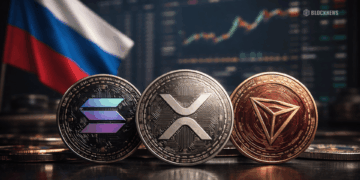- Singapore’s Monetary Authority has announced new measures to enhance investor protection in the cryptocurrency industry.
- Cryptocurrency exchanges will be required to hold customer assets in trust to protect investors and build market confidence.
- The new regulation is expected to be implemented before the end of the year, along with a ban on lending and staking for retail investors.
Singapore recently announced its plans to impose a trust requirement on cryptocurrency exchanges to boost market confidence and protect investors from potential losses.
According to a Bloomberg report, the Monetary Authority of Singapore (MAS) stated on Monday that cryptocurrency exchanges will be required to keep customer assets in trust. The new rule is expected to go into effect before the end of the year.
The news comes after the MAS launched a consultation on these measures in October 2022, just before the FTX debacle. The consultation sought to improve Singapore’s regulatory framework for digital assets.
The MAS stated, “This will mitigate the risk of loss or misuse of customers’ assets and facilitate the recovery of customers’ assets in the event of a DPT (Digital Payment Token or Cryptocurrency) service provider’s insolvency.”
Tightening the Regulatory Regime
Singapore will also move forward with its proposal to prohibit lending and staking for retail investors. However, institutional and accredited investors could continue to take advantage of these services.
Angela Ang, Senior Policy Advisor for blockchain intelligence firm TRM Labs and former MAS regulator, stated, “This latest tightening of retail access to crypto should be no surprise to anyone following the Singapore market, MAS’ decision to hold back on certain proposals, such as requiring an independent custodian for customer assets, shows it’s listening to the industry and is sensitive to practical considerations such as a dearth of third-party custodians.”
The MAS emphasized that, while regulations are essential in protecting consumers, traders must be cautious due to the high risk and speculative nature of digital payment token trading.
“Regulations alone cannot protect consumers from all losses, given the extremely high risk and speculative nature of digital payment token trading,” the MAS said in a statement, adding that traders must exercise “utmost caution” when trading.
A trust is a legal arrangement in which one party, known as the trustor or settlor, transfers ownership of assets to another party, known as the trustee.
The trustee then manages the assets on behalf of a third party, the beneficiary. Trusts are frequently used for estate planning and asset protection.
There are several advantages to establishing a trust. Trusts, for example, are effective tools for shielding assets from creditors and legal claims.
When assets are transferred to a trust, they are no longer considered part of an individual’s personal estate and are less vulnerable to lawsuits, bankruptcy, or other legal proceedings.
Trusts also give you more control and flexibility over managing and distributing your assets.
Settlors can impose conditions and instructions on the trustee, such as distributing assets to beneficiaries over time or for specific purposes. This control ensures that assets are used in accordance with the wishes of the settlor and can also protect beneficiaries from poor money management.
Conclusion
Singapore’s commitment to strengthening the regulatory landscape for digital assets reflects its determination to foster a secure and stable environment for cryptocurrency trading.
The requirement for exchanges to hold customer assets in trust and the proposed ban on retail lending and staking activities demonstrate the MAS’s commitment to protecting investors’ interests and mitigating potential risks.
As the cryptocurrency industry evolves, regulatory bodies worldwide must adapt and refine their approaches to ensure the industry’s long-term stability and security. Singapore’s proactive approach serves as an important model for other jurisdictions, emphasizing the importance of striking a balance between innovation and investor protection in the digital asset space.














